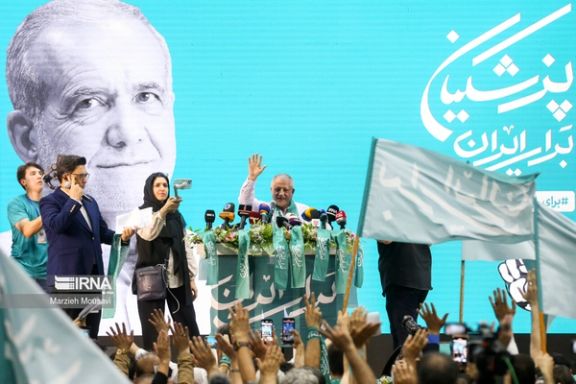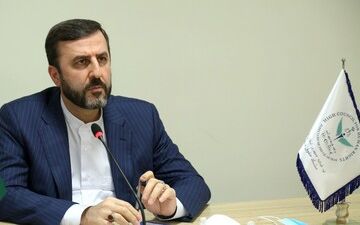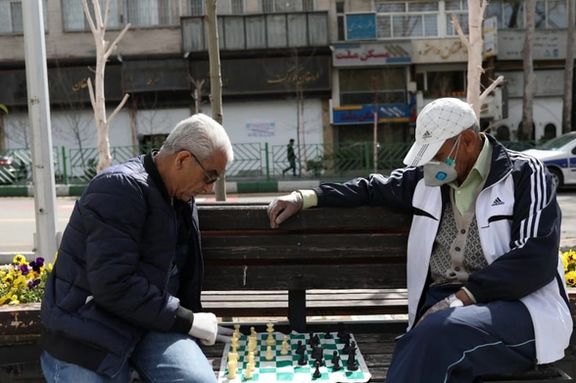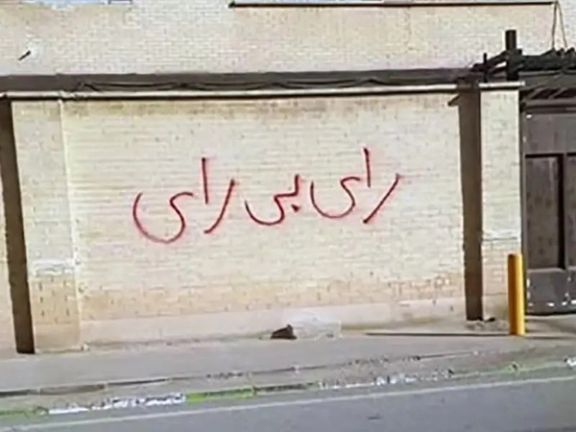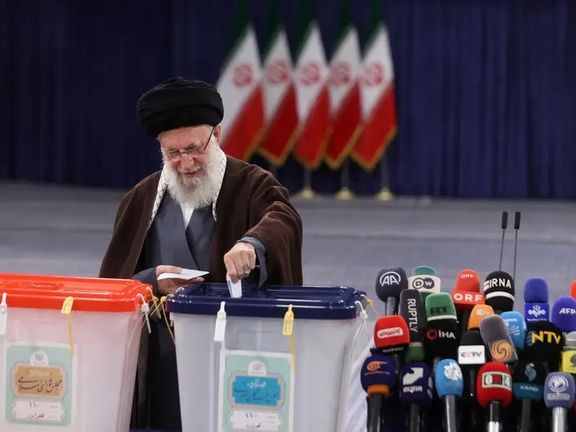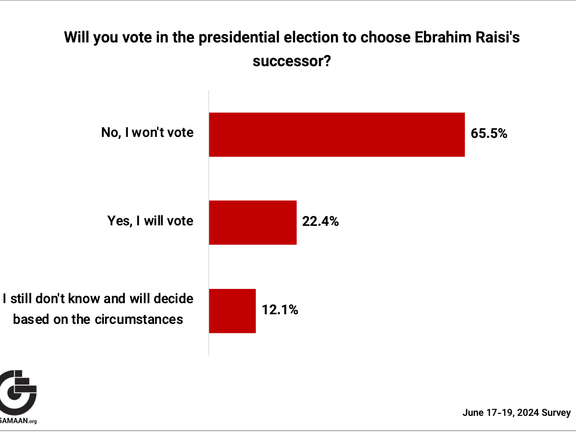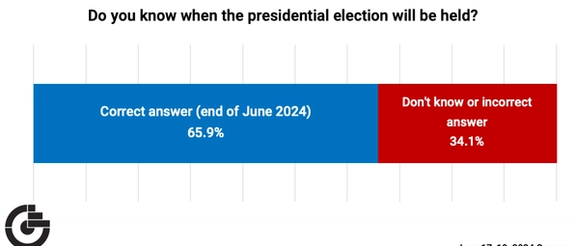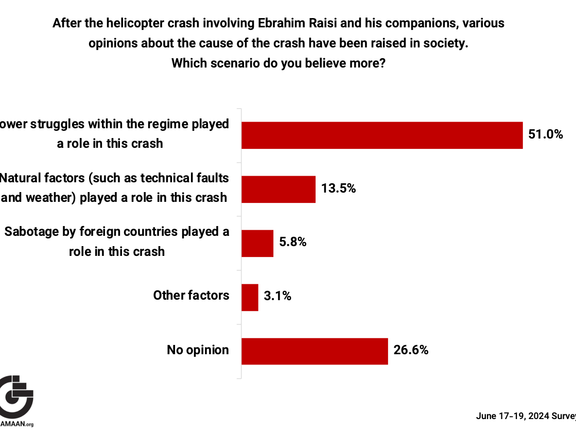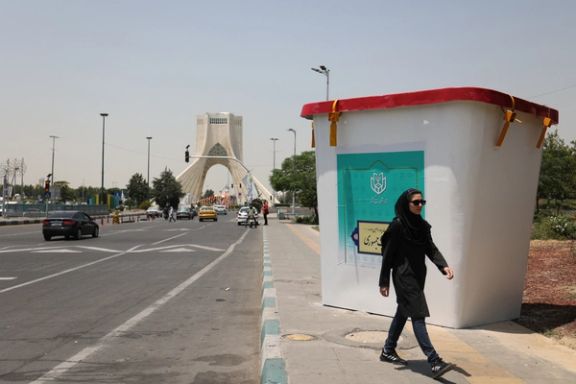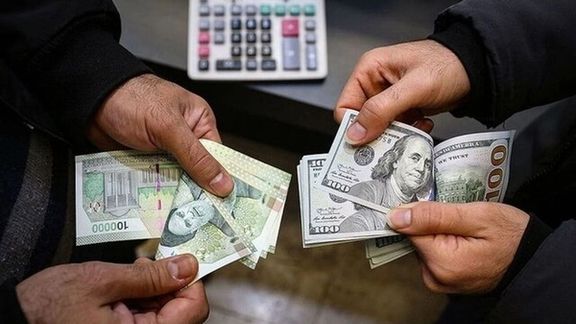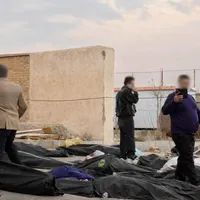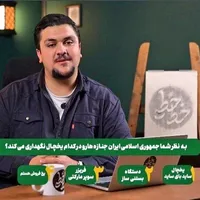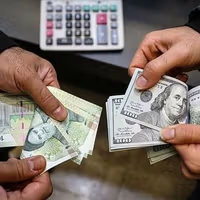Pezeshkian’s chance of being elected as the Islamic Republic’s next president largely depends on a high voter turnout. However, predicting public sentiment for the June 28 election is challenging due to the lack of reliable and independent surveys. So far, there is little evidence on social media or from reports inside Iran to suggest a shift in the public’s generally indifferent attitude toward the elections.
Three government agencies – the intelligence and interior ministries and the state broadcaster (IRIB) – conducted separate surveys in all previous elections. Results were not publicly announced but were often leaked to the media which referred to them only as “poll by a reliable state agency”.
In these elections, however, poll results are being tightly guarded, likely to prevent evidence of a possible low turnout from reaching the public. Authorities have also warned about unofficial online polls, labeling them as “falsified,” and have arrested at least twenty people for conducting such polls.
At this stage, former nuclear negotiator Saeed Jalili and newly re-elected speaker of the parliament, Mohammad-Bagher Ghalibaf, both of whom are hardliners, appear to be the strongest contenders with Pezeshkian closely following them in most unofficial, online polls.
Pezeshkian supporters in Sanandaj
Pundits say Pezeshkian has a chance of winning against his rivals if both hardliners remain in the race and around 60 percent of eligible voters go to the polls. Jalili and Ghalibaf have both insisted that neither will withdraw in favor of the other.
The chances that the three other candidates -- hardliners Alireza Zakani and Amir-Hossein Ghazizadeh, and conservative Mostafa Pourmohammadi – make a significant difference in the outcome of the elections is too small unless they withdraw in someone else’s favor, pundits say.
Pezeshkian, an independent politician with views close to reformists, is being supported by the Reforms Front and some moderate conservatives, including former Foreign Minister Mohammad-Javad Zarif. In the three highly controlled debates aired by the state television so far, Pezeshkian has presented a rather conservative image.
Zarif announced his support for Pezeshkian on June 17 and accompanied him to the second televised debate of the candidates where he delivered a fiery speech. Zarif’s support could increase Pezeshkian’s popularity among some of the voters but also has the potential to damage his position among other groups of the Iranian society.
Since then, he has actively promoted Pezeshkian on social media, Club House discussions and campaign meetings. Zarif also traveled to Kashan in central Iran on Friday where ultra-hardliners tried to disrupt his speech.
Pezeshkian supporters in Shiraz
In the past few days Pezeshkian’s popularity appears to have increased on social media. Google Trends also suggests he has been looked up more than the other candidates by more people since the first televised debate.
On Saturday, Pezeshkian received a rather warm welcome in Sanandaj, the capital of Iran's Kordestan Province, and then in Shiraz, the capital of Fars Province. Thousands also gathered for his speech in Ahvaz, the capital of the oil-rich but poverty-stricken province of Khuzestan, in the evening of the same day.
In Shiraz, thousands of supporters filled the stadium where he spoke, reiterating his promises to fight for social freedoms and try to solve the problem of crippling sanctions and corruption.
These, some Iranian social media users say, are only empty promises because they believe it is Supreme Leader Ali Khamenei who has the final say in all matters of importance and there are other centers of power, including a hardline dominated parliament and the Revolutionary Guards (IRGC), that can sabotage Pezeshkian’s efforts as they did when Hassan Rouhani was president.
Pezeshkian supporters in Ahvaz waiting for his arrival outside a packed hall
Those in favor of boycotting elections also argue that voting for Pezeshkian, whether he merits being chosen president or not, is tantamount to acknowledging the legitimacy of the Islamic Republic and its elections that they believe are “engineered”.
Others say he is not so different from the other candidates and politicians because throughout his campaign he has insisted in his speeches and election debates that if elected, he will not introduce any new economic plans and only carry out the existing ones that have been “approved” by Khamenei.
Critics also say Pezeshkian, 70, is out of touch with the younger generation who were the driving force of the anti-government protests of 2022-23.
Pezeshkian appears to be betting on the votes of ethnic groups and the Sunni minority who are mainly Kurdish, Turkmen and Baluchi speakers.
He has advocated the teaching of Turki, the Turkic dialect spoken in Iran's East and West Azarbaijan provinces, as well as other ethnic languages such as Kurdish in schools and says he will champion the rights of all ethnic groups and the Sunni minority.
Pezeshkian was born to a Kurdish mother and Azari father in the Kurdish city of Mahabad and is fluent in Turki and Kurdish languages. Some of Pezeshkian’s campaign posters have been printed in these two languages and he delivered part of his speech in Sanandaj Saturday in Kurdish.
